Russia and Iran officially connect the interbank network, the US will disadvantage Europe, China issues debt in USD for the first time, Germany continues to stagnate, inflation in the Czech Republic increases... are the world economic news highlights of the past week.
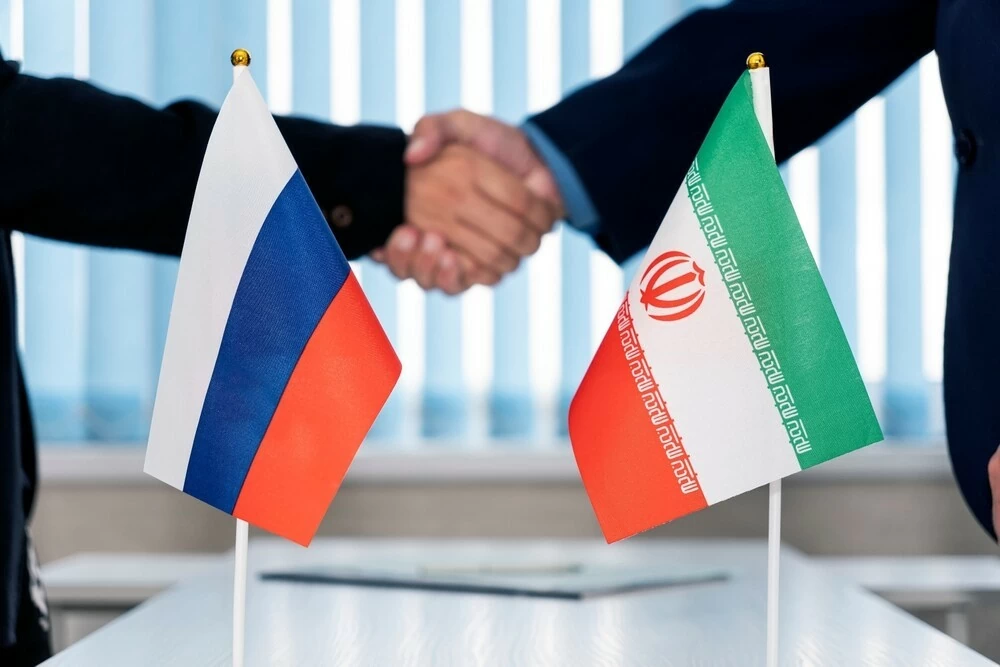 |
| Iran and Russia have officially connected their interbank networks, allowing the use of Iranian bank cards in Russia's ATM network. (Source: Shutter stock) |
World economy
Global electric vehicle sales rise
Global sales of electric and hybrid vehicles rose 35% to 1.72 million units in October 2024 compared to the same period last year, according to market research firm Rho Motion.
Sales growth was recorded in all regions, led by a 54% increase in China. Sales in the world's second-largest economy hit a record high of 1.2 million vehicles.
Meanwhile, sales in Europe rose just 0.8% to 260,000 units, but it was the second consecutive month of growth (compared to the same period in 2023). The European auto industry is facing many challenges including high production costs, the transition to electric vehicles and the influx of cheaper electric vehicles from Chinese rivals. Recently, Europe's largest automaker Volkswagen said it plans to close at least three factories in Germany.
In the US and Canada, electric vehicle sales rose 11.4% to 160,000 units. In the rest of the world, sales increased 10.9%.
US economy
* On November 12, the administration of US President Joe Biden completed the construction of a methane emission fee for major gas and oil production companies in an effort to encourage businesses to cut greenhouse gas emissions, the cause of climate change.
Accordingly, the fee for methane emissions will increase gradually each year, from 900 USD/ton in 2024, to 1,200 USD/ton and 1,500 USD/ton respectively in the next 2 years.
The US Environmental Protection Agency (EPA) said this emission fee regulation only applies to manufacturing facilities with CO2 emissions equivalent to over 25,000 tons/year.
* According to a survey by the US Federal Reserve (Fed), US banks saw weaker demand for business loans in the third quarter of 2024, while demand for consumer credit cards and auto loans also decreased. This shows that the Fed's interest rate cut has not improved credit demand.
According to the Fed, the net share of banks seeing increased commercial and industrial lending demand from medium- and large-sized business customers in the third quarter of 2024 fell to minus 21.3% from zero in the second quarter of 2024, and that of small businesses fell to minus 18.6% from zero.
Chinese economy
* China is offering dollar-denominated bonds in Saudi Arabia, marking the country's first greenback-denominated debt issuance since 2021.
The bonds being offered will have maturities of three and five years, with initial yields expected to be around 25 basis points and 30 basis points above the respective US Treasury yields. The choice of Saudi Arabia as the location for the issuance is unusual, as similar deals are typically conducted in London, New York and Hong Kong.
* China's trade surplus is on track to hit a new record this year, increasingly pitting the country against some of the world's major economies as it exacerbates global trade imbalances and could trigger a response from US President-elect Donald Trump.
If the current growth rate continues, Bloomberg estimates that China's merchandise trade surplus could reach nearly $1 trillion in 2024. In the 10 months since the beginning of this year, China's trade surplus reached $785 billion, up nearly 16% from the same period last year and the highest level ever recorded for this period.
European economy
* Goldman Sachs predicts that President-elect Donald Trump's protectionist trade policies will be detrimental to the European economy, especially Germany, which is already in crisis. On that basis, this investment bank has lowered its growth forecast for the European region.
New trade tensions with the US, pressure on Europe to increase defense spending and falling business confidence due to rising geopolitical risks will be the biggest headwinds for the region, according to Goldman Sachs.
Goldman Sachs forecasts that the Gross Domestic Product (GDP) of the 20 countries that use the eurozone will grow 0.8% next year, down from the previous forecast of 1.1%.
* On November 11, Iran and Russia officially connected the two countries' interbank networks , allowing the use of Iranian bank cards in Russia's ATM network.
The major move, aimed at simplifying financial transactions for Iranian and Russian tourists, marks a milestone in economic cooperation between the two countries. Iran and Russia have been working to strengthen their banking systems since sanctions were imposed on Moscow more than a decade ago. Plans are underway to address the challenges facing businesses in both Iran and Russia.
* Russian media reported on November 13 that Russian Energy Minister Sergei Tsivilev said that lifting restrictions on gasoline exports is feasible because fuel prices have stabilized.
Russia had previously extended its gasoline export restrictions until the end of this year in August 2024. The Russian government has banned the export of petroleum products from the fall of 2023 due to the peak of the fuel market price crisis, amid fuel shortages in many places.
* According to data released by the General Administration of Customs of the Russian Federation, in the period from January to September 2024, Russia's trade surplus increased to the equivalent of 114.9 billion USD, an increase of 11.55% compared to 2023. In the period from January to September 2024, imports into Russia decreased by 10.6 billion USD to 203.3 billion USD, while exports reached 318.2 billion USD, an increase of 1.3 billion USD compared to the same period last year. Due to a significant decrease in imports and a slight increase in exports, Russia's trade turnover this year decreased slightly (1.75%), reaching 521.5 billion USD.
According to the General Department of Customs of the Russian Federation, exports to Asian and African countries increased but decreased to European and Latin American countries.
* The Czech Statistical Office (CSU) announced on November 11 that the inflation rate in this Central European country increased to 2.8% in October compared to 2.6% in September. Analysts predict that the Czech Republic's inflation rate will continue to accelerate in the coming time and rise above 3% by the end of 2024.
Cyrrus chief economist Vit Hradil said that in October, prices of goods and some services in the Czech Republic increased “relatively” but housing prices increased “unusually”. The inflation rate in October was 2.8%, which coincided with the previous forecast of the Czech National Bank (CNB).
* According to the annual forecast report released by the German Council of Economic Experts on November 13, the country's economy is expected to stagnate in 2024.
The report said the German economy remains in dire straits . The weak growth rate continues to show that Europe's leading economy is slowing down due to both economic and structural problems. GDP has increased by a total of 0.1% in real terms over the past five years. This means that the German economy continues to lag behind the international growth.
Japanese and Korean economies
* The Japanese government is planning to continue subsidizing gasoline prices into 2025, with cuts in stages.
In the draft economic stimulus plan, subsidies will continue into 2025. However, the price ceiling for consumers will be raised from about 175 yen ($1.14) a liter to 185 yen.
Previously in June 2024, the Japanese government decided to extend gasoline subsidies until the end of the year and temporarily re-apply utility bill discounts during the summer.
* The Japanese government will propose a $65 billion plan to boost the domestic semiconductor industry with subsidies and other financial support over a "multi-year" period.
The plan, with financial support worth 10 trillion yen ($65.1 billion) or more, comes as countries seek to strengthen control of semiconductor supply chains following global shocks including trade tensions between the United States and China, according to a draft disclosed on November 11.
* The Federation of Korean Entrepreneurs (FKI) announced on November 13 its analysis of the business results of 814 companies in the non-financial sector. The total revenue of these companies in the first half of 2024 increased by 6.7% compared to the same period last year.
The analysis results show that out of 814 enterprises, 194 export enterprises had a 13.6% increase in revenue; 620 domestic consumption enterprises had a 1.9% decrease in revenue. This is the first time since 2020 that domestic consumption enterprises have had a decrease in revenue.
* On November 13, the Korea Chamber of Commerce and Industry (KCCI) announced that HS Vice President Hyosung Cho Hyun Sang will take on the leadership role of the Asia-Pacific Economic Cooperation (APEC) Business Advisory Council.
Cho was elected chairman of the APEC 2025 Business Advisory Council (ABAC) at the 4th ABAC meeting held in Lima, Peru this week, according to the KCCI. The KCCI serves as the ABAC secretariat for Korea.
ASEAN Economy and Emerging Economies
* The government of new Indonesian President Prabowo Subianto emphasizes that micro, small and medium enterprises (MSMEs) will become one of the pillars in the national economy.
MSME is one of the pillars of national economic growth, as Indonesia has 66 million MSME enterprises, accounting for 99% of the total number of business units in the country.
Prabowo's economic policy aims to achieve 8% economic growth and poverty reduction by focusing on investment, exports and strategic sectors such as agriculture, manufacturing and technology.
* Malaysia has committed to achieving net zero greenhouse gas emissions by 2050, positioning itself as a globally responsible player in the fight against climate change, despite accounting for only 0.8% of global emissions.
In a statement released on November 13, Minister of Natural Resources and Sustainable Environmental Development Nik Nazmi Nik Ahmad outlined the country's new climate action framework, which includes a series of ambitious targets on renewable energy adoption and carbon emission reduction.
* Thailand's tourism industry has just received good news when the prestigious American travel magazine Travel + Leisure declared Thailand as the "Destination of 2025" because of its cultural richness, breathtaking natural beauty and wonderful cuisine.
The selection of Thailand for 2025 reflects the magazine’s commitment to enhancing the traveler experience through cultural authenticity, culinary diversity and responsible tourism initiatives that protect natural and cultural heritage.
Source: https://baoquocte.vn/kinh-te-the-gioi-noi-bat-8-1411-nga-iran-bat-tay-doi-pho-trung-phat-my-gay-kho-chau-au-trung-quoc-lan-dau-phat-bannh-no-bang-usd-293676.html



![[Photo] Lam Dong: Images of damage after a suspected lake burst in Tuy Phong](https://vphoto.vietnam.vn/thumb/1200x675/vietnam/resource/IMAGE/2025/11/02/1762078736805_8e7f5424f473782d2162-5118-jpg.webp)

![[Photo] President Luong Cuong receives US Secretary of War Pete Hegseth](https://vphoto.vietnam.vn/thumb/1200x675/vietnam/resource/IMAGE/2025/11/02/1762089839868_ndo_br_1-jpg.webp)







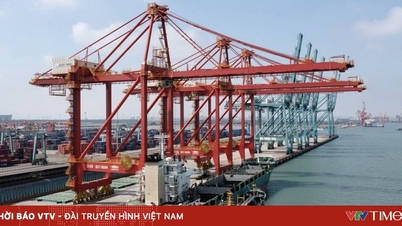
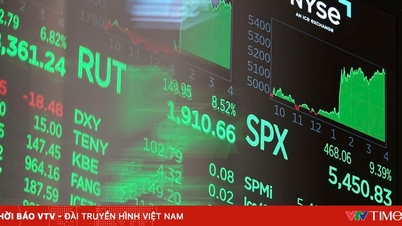


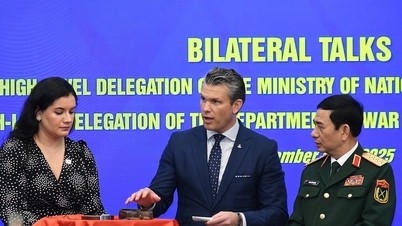

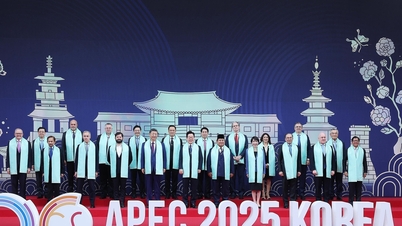




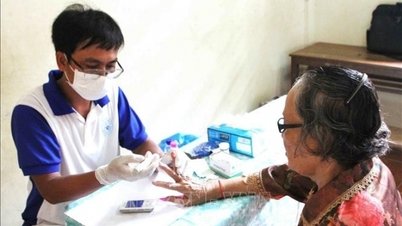





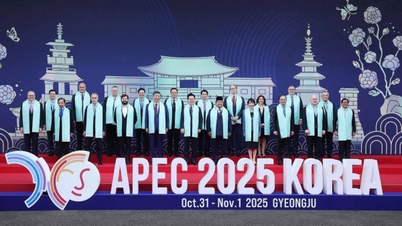
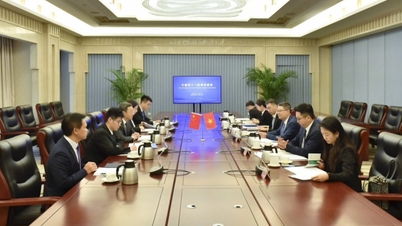


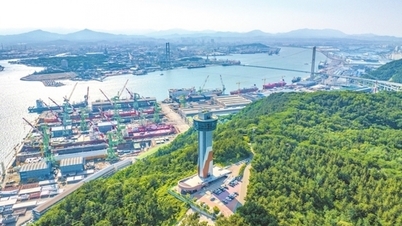



































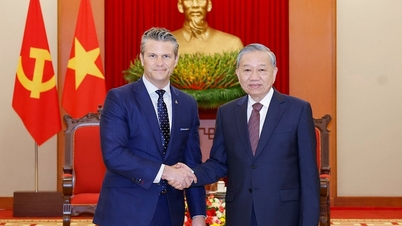



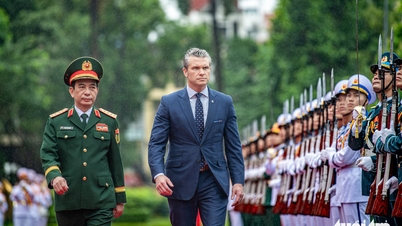








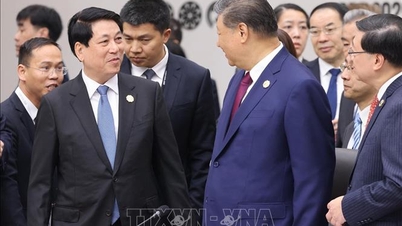

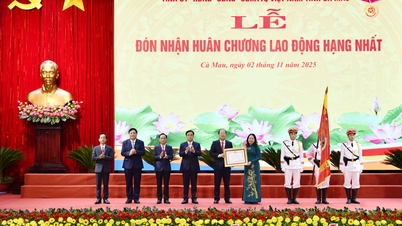

























Comment (0)